Why am I Gaining Weight Despite Diet and Exercise? │ QA
If you’re careful with your nutrition, working out weekly, and still experiencing problems with your weight, take a moment to read this QA.
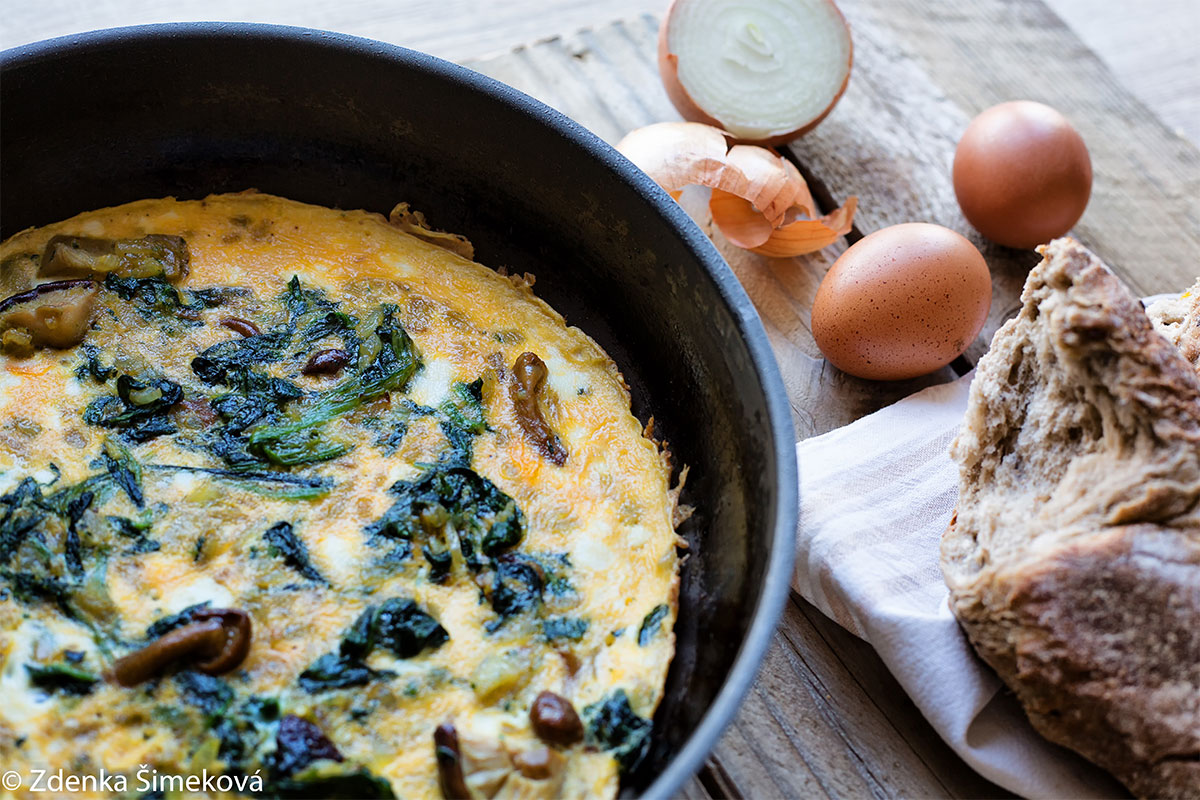

Hi. I am trying to lose weight. Could you please give me examples of 4 ounces of protein and 1 ounce of green vegetables? Grilled chicken and broccoli every day isn’t appealing long term. Also, what would some snacks with 15 grams of protein be? Thanks.
– Mike S.

Here are some examples per your request:
| Protein equivalent to 4 oz meat/poultry | Green Vegetable | Snacks | |
| 1 can of chili beans + 1 oz. cheese | peppers (+onion, tomato) | ½ C. hummus, crudités, pita chips | |
| 2 eggs + 4 whites | spinach (+mushroom) | ½ C. cottage cheese (+pineapple) | |
| 8 oz. plain Greek yogurt | cucumber salad (+onion, tomato) | 2 Tbsp. peanut butter, celery, raisins | |
| salmon or halibut | asparagus (+garlic) | 1.5 oz. jerky (+watermelon) | |
| ahi tuna | mixed salad greens (+avocado) | ½ C. tuna salad (+crackers) | |
| pork tenderloin | green beans (+red pepper) | 1.5 oz. [50 gm] zone-type bar | |
| beef eye of round | zucchini (+ cherry tomato) | 2 oz. [1/2 C.] almonds (+apple) | |
| chicken breast | kale slaw (+cabbage, carrot) | small bean & cheese burrito | |
| turkey breast | Brussel sprouts | hard cooked egg + 3 C. popcorn |
– Debbie J., MS, RD
This article should not replace any exercise program or restrictions, any dietary supplements or restrictions, or any other medical recommendations from your primary care physician. Before starting any exercise program or diet, make sure it is approved by your doctor.
Some questions have been edited for length and/or clarity.
 Have a nutrition question? Our registered dietitian is ready to help!
Have a nutrition question? Our registered dietitian is ready to help!
Email nutrition@lafitness.com or submit your question below and it may be featured in an upcoming article!
If you’re careful with your nutrition, working out weekly, and still experiencing problems with your weight, take a moment to read this QA.
Blood sugar control isn’t easy. These are Debbie’s top recommendations for how to address weight control with Type II Diabetes.
It's easier to work hard when you’ve got a game plan. Here are some options to help keep you moving until the last second of your workout!

Welcome to the 5th episode of the Living Healthy Podcast, presented by LA Fitness.
On this episode of Living Healthy, we’re covering high blood pressure, otherwise known as hypertension, and speak with experts in the field regarding this deadly silent killer.
How Are We Doing?
Introduction:
Begins at 0:01
MOS (Man on the Street):
Begins at 1:10
Introduction of Dr. Warren Johnston, Cardiologist and President of OC Division of AHA (American Heart Association) and Director of the Women’s Health Center at St. Joseph’s Hospital
Begins at 2:08
AHA New Guidelines:
Begins at 3:28
Marijuana Use and High Blood Pressure (HBP):
Begins at 5:40
The Silent Killer:
Begins at 8:10
At What Age Does High Blood Pressure Begin?
Begins at 8:38
What Causes HBP?
Begins at 9:33
Nutrition’s Role on High Blood Pressure/Introduction of Debbie James, RDN
Begins at 10:51
Physical Activity’s Role on High Blood Pressure/Introduction of Pro Results® Trainer, Morgan Connors
Begins at 15:01
Is HBP Really Life or Death?
Begins at 18:35
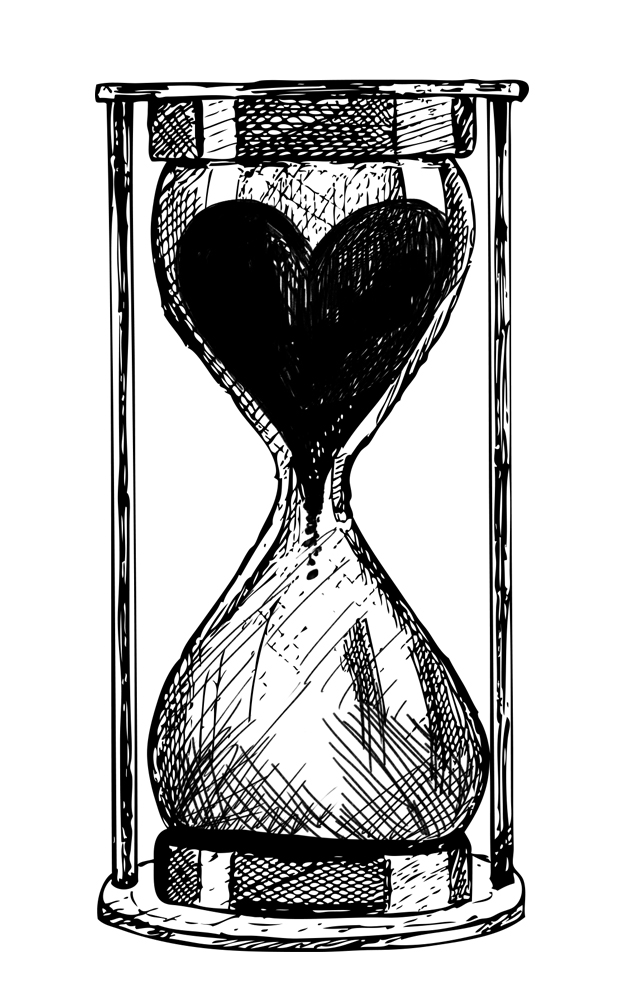
This podcast should not replace any exercise program or restrictions, any dietary supplements or restrictions, or any other medical recommendations from your primary care physician. Before starting any exercise program or diet, make sure it is approved by your doctor.
If you’re careful with your nutrition, working out weekly, and still experiencing problems with your weight, take a moment to read this QA.
Blood sugar control isn’t easy. These are Debbie’s top recommendations for how to address weight control with Type II Diabetes.
It's easier to work hard when you’ve got a game plan. Here are some options to help keep you moving until the last second of your workout!

LA Fitness Pro Results® Master Trainer, Stone T., and get his expert insight on the stair climbing machine. Is this machine worth the sweat? We find out.
**Selected submissions will be featured on the LA Fitness blog and possibly other LA Fitness digital media entities & websites. By making a submission, you hereby grant LA Fitness a non-exclusive, perpetual, worldwide, irrevocable license to use and make copies of the contents of such submission for any purpose and in any medium whatsoever, and you hereby waive and relinquish any copyright or other intellectual property right you may have in the contents of such submission and your right to pursue any claim for LA Fitness’s violation of those intellectual property rights.
If you’re careful with your nutrition, working out weekly, and still experiencing problems with your weight, take a moment to read this QA.
Blood sugar control isn’t easy. These are Debbie’s top recommendations for how to address weight control with Type II Diabetes.
It's easier to work hard when you’ve got a game plan. Here are some options to help keep you moving until the last second of your workout!


How do I get rid of runny stools?
– Bjorn

What goes in must come out, so I consider what happens in the bathroom open for discussion here. If you suffer from persistent runny stool, there may be an underlying physical cause or infection and you should first consult a physician*. Aside from medication side effects, if your bowel movements are loose on occasion it could be stress or something you’re eating that ‘disagrees’ with you.
The gut can be affected by not only emotional stress or anxiety, but physical stress as well. (e.g., endurance runners often have colitis, resulting in bathroom issues when they run). A diet change or introduction of new/unusual foods, particularly spicy ones, may prompt your GI system to partially reject what it’s unfamiliar with. Another possibility is that you may have a reduced tolerance for lactose, fructose, gluten or sugar alcohols.
Here are some tips to deal with runny poop:
To help determine if particular foods may be bothering you:
*See a medical doctor if you have chronic diarrhea, defined by 3 or more watery stools per day lasting 4 weeks or more, or if you’ve lost weight unintentionally as you may be at risk for dehydration or malabsorption.
References:
– Debbie J., MS, RD
This article should not replace any exercise program or restrictions, any dietary supplements or restrictions, or any other medical recommendations from your primary care physician. Before starting any exercise program or diet, make sure it is approved by your doctor.
Some questions have been edited for length and/or clarity.
 Have a nutrition question? Our registered dietitian is ready to help!
Have a nutrition question? Our registered dietitian is ready to help!
Email nutrition@lafitness.com or submit your question below and it may be featured in an upcoming article!
If you’re careful with your nutrition, working out weekly, and still experiencing problems with your weight, take a moment to read this QA.
Blood sugar control isn’t easy. These are Debbie’s top recommendations for how to address weight control with Type II Diabetes.
It's easier to work hard when you’ve got a game plan. Here are some options to help keep you moving until the last second of your workout!

Summer and sweat seem to go hand-in-hand. Longer days mean more exposure to the sun and the hotter temps can lead to dehydrated bodies.
Luckily, there are plenty of ways to avoid this and keep your body properly hydrated this summer (and year around).
We spoke with Dr. Ronald Navarro, Orthopedic Surgeon and Sports Medicine Specialist at Kaiser Permanente South Bay Medical Center, and got his take on why staying hydrated is so important.
Q: How much water do people need each day?
Dr. Ronald Navarro: The most agreed upon recommendation is to drink six or eight 8-ounce glasses of water every day. However, some adults may need more or less, depending on their overall health (certain illnesses and/or medications may affect this need), how much they exercise and the level of intensity, and how hot and dry the weather is.
Q: How many people on average, are dehydrated?
Dr. R.N.: Some polls have reported that up to 75% of Americans suffer from chronic dehydration. Anecdotally, we see the rate of dehydration be higher in the summer and fall when temperatures are higher and perspiration or sweating is more pronounced.
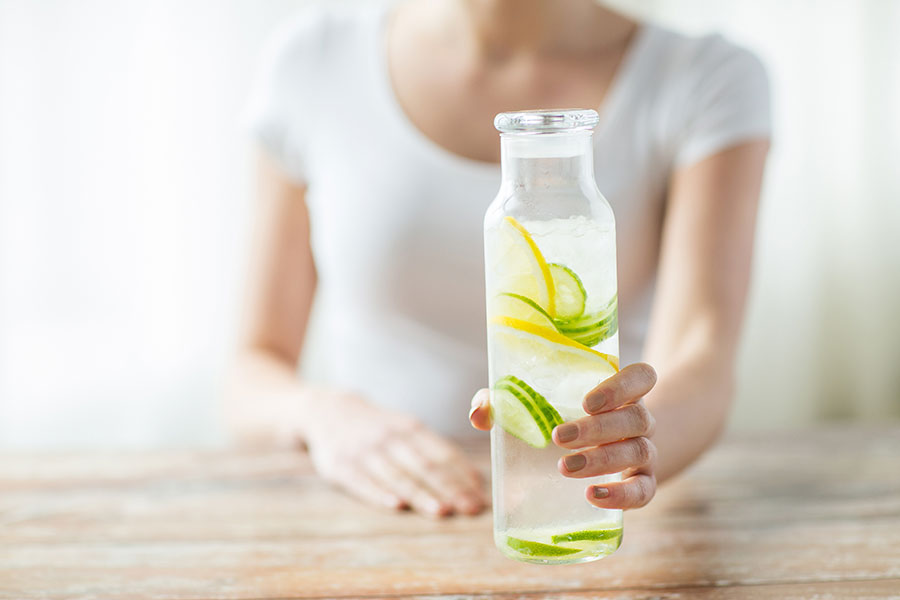
Q: On a micro level, why is hydration important?
Dr. R.N.: Water is a basic need for cellular health. Cells contain water and are surrounded by water. In dehydration, cell membranes become less permeable, hampering the flow of hormones and nutrients into the cell and preventing waste products that cause cell damage from flowing out.
Q: On a macro level, why is hydration important?
Dr. R.N.: When we exercise, our bodies cool off by sweating. As we perspire, we lose necessary body fluids. If we do not replace these fluids, we become dehydrated. This makes it difficult to sweat and cool down, which can result in a heat injury.

Understandably, water plays a huge role in keeping our bodies hydrated, healthy, and better functioning when we add some extra H2O to our daily diet.
But if you’re not a fan of chugging water throughout the day, there are other options available to you. Here’s a list of seasonal fruits and vegetables that help hydrate our body provided by Nadia Borchardt, Registered Dietician at Kaiser Permanente South Bay Medical Center.
Cucumbers are about 97% water, making them the food with the highest water content. In addition to providing the body with hydration, they also aid in eliminating toxins from the body and are a great source of magnesium and potassium. You can enjoy them in salads or as a snack.
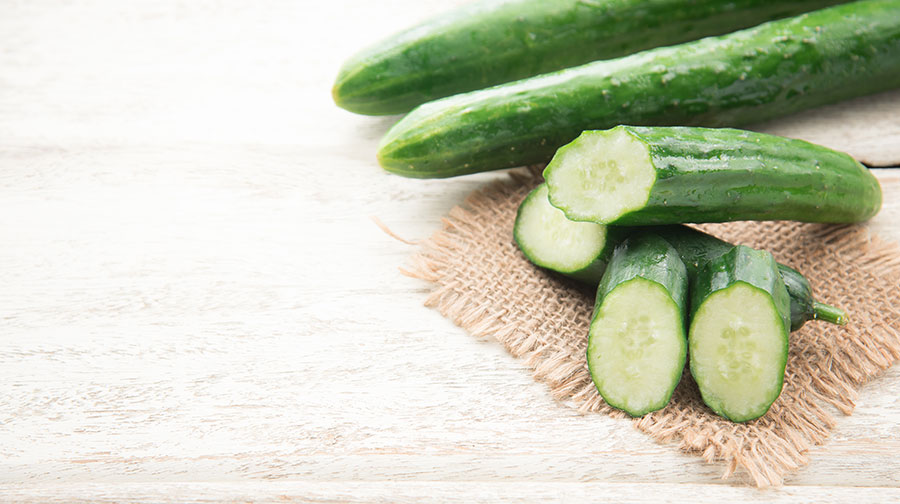
Watermelon is considered a food rich in nutrients and low in calories. About 95% of its content is water and it’s full of electrolytes, which helps prevent dehydration. In addition, watermelon contains a large amount of vitamins A, B6 and C, minerals and antioxidants. Watermelon contains the highest level of lycopene than any other fruit or vegetable. Lycopene is considered a powerful antioxidant that can help protect the body’s cells from harm.

Strawberries are made of 92% water. They are low in calories and like other berries, are rich in antioxidants, vitamins B and C, calcium and potassium.
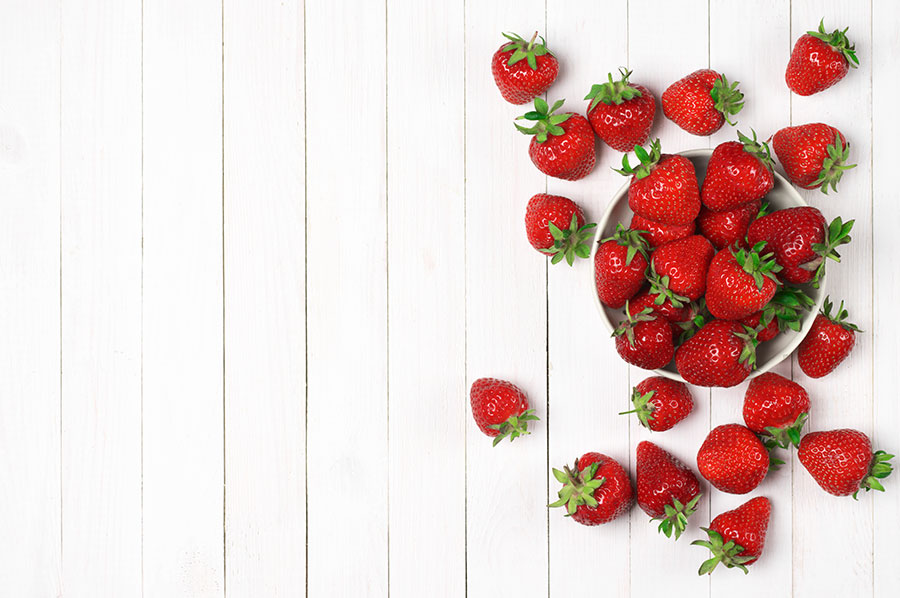
Iceberg lettuce is made of 96% water. Not only will it help quench our thirst, but it will also satiate our hunger.
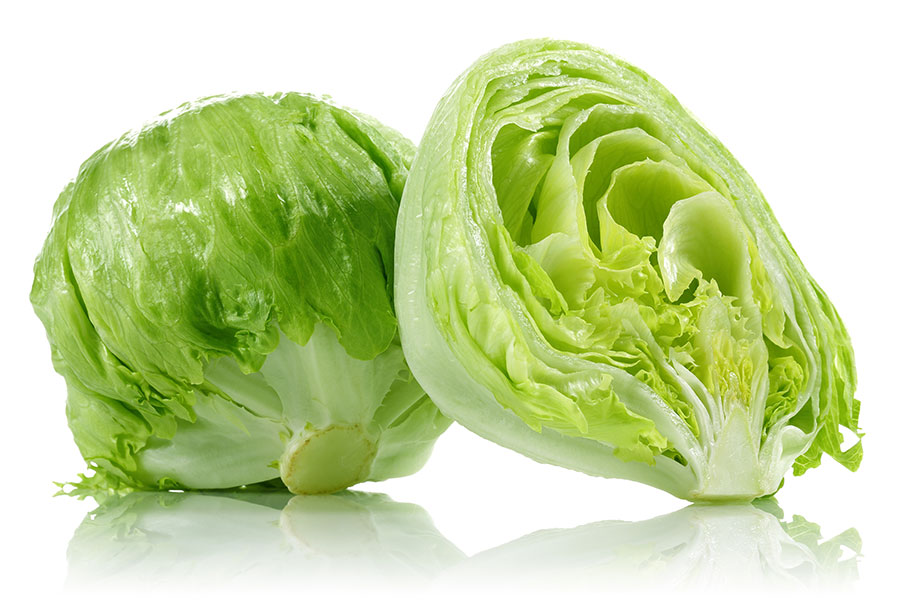
Peaches contain approximately 88% water. They are rich in fiber, potassium, vitamin C and choline, all substances that support our heart health.

Spinach is about 92% water, making it especially beneficial in keeping you hydrated. Spinach is also rich in magnesium, potassium, and B-vitamins, all of which are known to increase energy.

Celery has a water content of about 95%. It also has natural salts that help to replenish levels of sodium, potassium, magnesium, calcium, phosphorus, iron and zinc in the body.

Questions provided by Mayra Suarez, Senior Media Relations Representative at Kaiser Permanente Southern California.
If you’re careful with your nutrition, working out weekly, and still experiencing problems with your weight, take a moment to read this QA.
Blood sugar control isn’t easy. These are Debbie’s top recommendations for how to address weight control with Type II Diabetes.
It's easier to work hard when you’ve got a game plan. Here are some options to help keep you moving until the last second of your workout!
Be the first to know about exclusive
content, deals and promotions